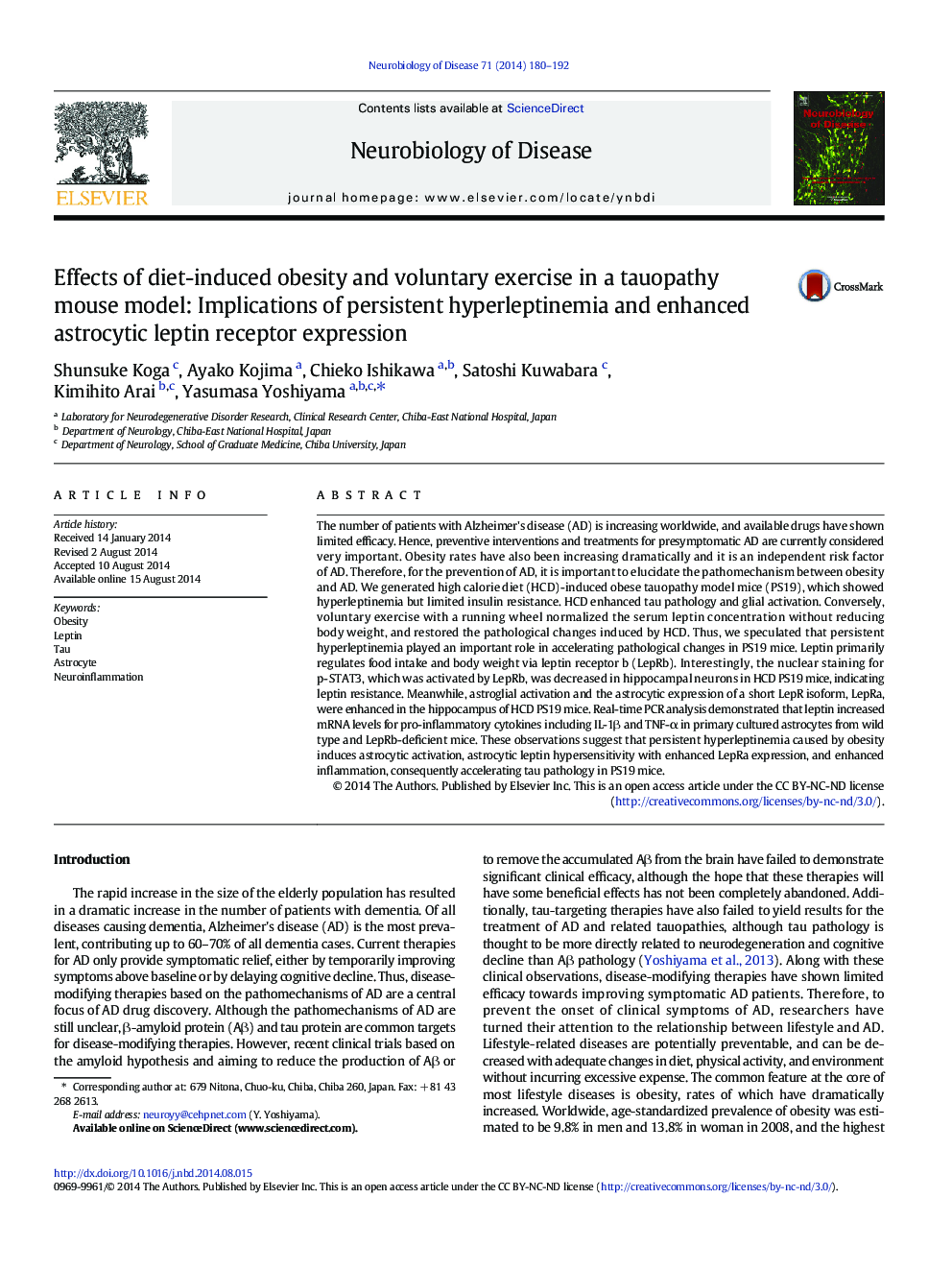| Article ID | Journal | Published Year | Pages | File Type |
|---|---|---|---|---|
| 6021809 | Neurobiology of Disease | 2014 | 13 Pages |
â¢Diet-induced obesity without distinct insulin resistance enhances tau pathology in a tauopathy mouse model.â¢Voluntary exercise without body weight reduction restores the enhanced tau pathology.â¢Obesity induces persistent hyperleptinemia, astrogliosis and enhanced astroglial leptin receptor expression.â¢Leptin induces IL-1β and TNF-α mRNA expressions in the primary cultured astrocytes.
The number of patients with Alzheimer's disease (AD) is increasing worldwide, and available drugs have shown limited efficacy. Hence, preventive interventions and treatments for presymptomatic AD are currently considered very important. Obesity rates have also been increasing dramatically and it is an independent risk factor of AD. Therefore, for the prevention of AD, it is important to elucidate the pathomechanism between obesity and AD. We generated high calorie diet (HCD)-induced obese tauopathy model mice (PS19), which showed hyperleptinemia but limited insulin resistance. HCD enhanced tau pathology and glial activation. Conversely, voluntary exercise with a running wheel normalized the serum leptin concentration without reducing body weight, and restored the pathological changes induced by HCD. Thus, we speculated that persistent hyperleptinemia played an important role in accelerating pathological changes in PS19 mice. Leptin primarily regulates food intake and body weight via leptin receptor b (LepRb). Interestingly, the nuclear staining for p-STAT3, which was activated by LepRb, was decreased in hippocampal neurons in HCD PS19 mice, indicating leptin resistance. Meanwhile, astroglial activation and the astrocytic expression of a short LepR isoform, LepRa, were enhanced in the hippocampus of HCD PS19 mice. Real-time PCR analysis demonstrated that leptin increased mRNA levels for pro-inflammatory cytokines including IL-1β and TNF-α in primary cultured astrocytes from wild type and LepRb-deficient mice. These observations suggest that persistent hyperleptinemia caused by obesity induces astrocytic activation, astrocytic leptin hypersensitivity with enhanced LepRa expression, and enhanced inflammation, consequently accelerating tau pathology in PS19 mice.
